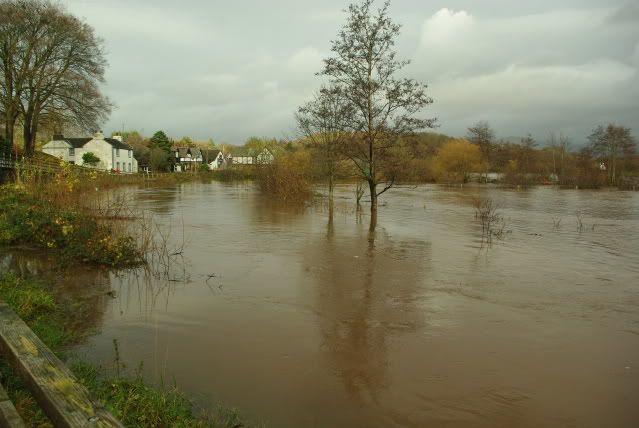|
|
Post by John Parry on Nov 22, 2009 20:34:28 GMT -5
 There's a 10 foot wide river under there somewhere! Mickey - the English place names are fascinating. The southwest of Cumbria - Furness, used to be part of Lancashire, (Lancashire-Over-the-Sands. There's a broad estuary between the two, and the connection is still retained in place names such as Grange-Over-Sands). It includes our biggest extant ship-building port, Barrow-in-Furness. They still think of themselves as being in Lancashire. I told you it was confusing - they are geographically in Cumbria, while legally they are still in Lancashire. In this part of Cumbria they tend to talk of the hills as the tops, elsewhere as the fells. |
|
mickeyobe
Lifetime Member
   Resident President
Resident President
Posts: 7,280
|
Post by mickeyobe on Nov 22, 2009 22:59:54 GMT -5
PeterW,
You are correct.
My translation from English English to Canadian English was Fawlty.
I wonder where Mick gets his sweaters and hats.
Mickey
|
|
mickeyobe
Lifetime Member
   Resident President
Resident President
Posts: 7,280
|
Post by mickeyobe on Nov 22, 2009 23:17:31 GMT -5
John, " I told you it was confusing - they are geographically in Cumbria, while legally they are still in Lancashire. In this part of Cumbria they tend to talk of the hills as the tops, elsewhere as the fells. " Indeed that is confusing.  But consider Canada. In both Hamilton and Montreal they have hills that they call mountains. In Alberta they have mountains that they call foothills. And some of our Great Lakes are bigger than some old world seas. And the country to our south calls itself the United States of America but we don't call Canada the Disunited State of America. No consistency. No consistency.  Mickey |
|
|
|
Post by herron on Nov 24, 2009 9:46:45 GMT -5
John:
Sorry to hear about all the flooding. Hope you have a bird to send out looking for an olive branch! Of course, you do realize the irony of that "overflow" sign in the first pic.
|
|
SidW
Lifetime Member
  
Posts: 1,107
|
Post by SidW on Nov 25, 2009 20:32:44 GMT -5
.... Apparently, Gubbergill is quite ancient. There was a Roman bath house there ... There you are, a perfectly mundane explanation for all that water, the district's been relying on Roman drains all these years and now they chose this moment to get blocked (just Murphy's law, not global warming) But that was some cloud, that was after emptying a load on Ireland, and then there was plenty for us, and it didn't stop until it reached the north of Finland and turned to snow. John, while we're looking at old words, "welsh" comes from an old Anglo-Saxon word for strange. The Welsh were strangers. My father (born in Kent) used it in the sense of strange, if we did soething odd he'd say "you're just welsh". |
|